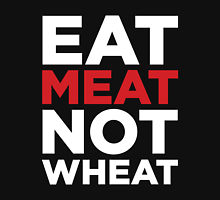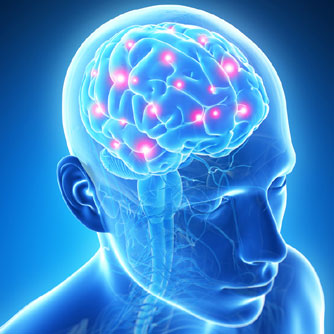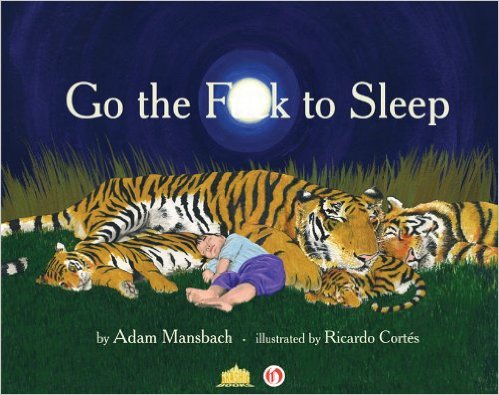Nutrition
A new study from McMaster University demonstrates the major impact dietary protein has on muscle gain and fat loss. The researchers split participants into a high protein group (2.4g per kg bodyweight) and low protein group (1.2g per kg bodyweight), and had them train 6 days per week while eating the same number of calories. Finding significantly better results for those eating more protein – gaining approximately 2.5lbs (1.2kg vs 0.1kg) more lean mass, and losing 2.5lbs more body fat (-4.8kg vs -3.5kg).
For those that still think high-protein means ill health, there was additional evidence from the Journal of the International Society of Sports Nutrition this month, that proves this is definitely not the case. Resistance trained men ate large amounts of protein (2.6-3.3g per kg bodyweight) for 4 months and experienced no adverse effects in blood markers or renal function. Just like we’ve discussed in the past.
Elderly individuals between the ages of 61 and 80, can have brain levels of B12 (methylcobalamin) that are 10 times lower than their younger counterparts. This decline with age should not be looked at as ‘inevitable;’ and since these levels are lower than those with autism and schizophrenia, it should serve as a wake-up call. Ditch the wheat, and eat more meat!

Mouse study finds that fructose and sucrose promote tumor growth and metastasis, and could be responsible for increasing breast and lung cancer risk. The mice were given dietary sugars comparable to the typical Western Diet, and the researchers demonstrated an increased expression of an enzyme pathway (12-LOX) and the production of a specific fatty acid (12-HETE) related to cancer growth.
The DASH (Dietary Approaches to Stop Hypertension) diet appears to produce a healthier heart when the low-fat foods are swapped for higher-fat foods, and carbohydrates are reduced. Lowering triglycerides to a greater extent, and having a similar effect on blood pressure.
A meta-analysis in the British Journal of Nutrition highlights the superiority of low-carb diets to low-fat ones…AGAIN! Better weight loss, better fat loss, better heart markers.
Full-fat dairy (and not low-fat dairy) is inversely associated with the metabolic syndrome in middle-aged and older adults. Something this study from the Journal Nutrition attributes to the ‘saturated fatty acids.’ Which were once again relieved of their link to heart disease, in this study from the American Journal of Clinical Nutrition.
Fitness
Short bouts of vigorous exercise (aka HIIT) are more effective than long moderate-intensity exercise (aka Cardio) for improving cardiometabolic health, according to a recent meta-analysis in the journal Obesity Reviews. As the lead researcher commented:
“HIIT may therefore be suitable as an alternative to continuous exercise training in the promotion of metabolic health and weight loss, particularly in those with Type 2 diabetes or metabolic syndrome.”
A review and meta-analysis from JAMA Internal Medicine found that ‘exercise alone’ can reduce low back pain by 35% and sick leave by 78%. Imagine that!
Trying to lose weight by exercising to ‘burn calories’ is once again shot down, as scientists discuss the adjustment to our energy expenditure that occur when we ‘exercise more.’ In a nutshell, people that exercise a lot plateau and don’t burn more calories than people that exercise a little.
Lifestyle
According to the Journal of the American Academy of Orthopaedic Surgeons, back pain is on the rise for children and adolescents. Poor posture, a weak core, low activity levels, chronic sitting and obesity are mentioned as potential explanations for the increase. Gotta love those computers!
Researchers at the University of Florida provide more clarification on how stress makes us fat. Uncovering a stress-related protein called betatrophin, that reduces our ability to break down fat.
Increased social interactions appear to benefit gut microbes…at least if you’re a chimpanzee. According to the research, from the journal Science Advances, chimps had 20-25 greater bacterial diversity during the more social wet season, compared to their isolated dry season. Sure, the increased availability of food makes a difference, but the scientists also believe bacterial exchange during grooming, mating, and other forms of physical contact play a significant role.
Poor sleep in adolescents linked to elevated cortisol levels (stress), and delayed sleep in middle aged women is associated with insulin resistance. Nothing new here; just a friendly reminder (for you and your kids) to turn the electronics off and get to sleep.
Give your a kid a stand-up desk and watch his/her test scores rise? Maybe, according to a new study from Texas A&M; where students exhibited better brain performance and cognitive performance while standing.
Health & Disease
Obesity and disease are related, and obesity early in life can predict disease later in life, but that doesn’t mean they’re inevitable. Research from the British Medical Journal found that men who were overweight and at a higher risk of diabetes and heart disease at 21 years of age could reverse that risk if they trimmed up at some point over the next 30 years. Entering their 50’s with a leaner physique and a lower risk of heart attack and stroke.
We’ve already discussed the health and body composition consequences from chronically elevated blood sugar, and how this relates to heart disease. Although, new evidence from the British Journal of Pharmacology gives us one more reason to eat less sugar; showing that our blood vessels contract in response to glucose. Which also adds to the case that elevated blood pressure is a high-carb problem, not a high-salt problem.
Research in the journal Nature uncovers a link between prostate cancer and obesity. Discussing how the disease progresses when tumor cells infiltrate the Periprostatic adipose tissue (PPAT) surrounding the prostate, and how the size and number of these cells is higher in those carrying excess fat.
A systematic review in the Journal Psychiatry Neuroscience establishes a link between low cholesterol and poor mental health. Compared to those with the highest Total Cholesterol levels, those with the lowest are 123% more likely to attempt to suicide. As we’ve discussed in the past, this is because your brain NEEDS cholesterol!

Non-Alcoholic Fatty Liver Disease (NAFLD) now affects more than 30% of the population, and a new study from the journal Radiology suggests that it’s independently associated with heart failure. For those new to this blog, NAFLD has nothing to do with ‘excess dietary fat’ and everything to do with ‘excess dietary carbohydrate.’
The association between autism and maternal obesity is brought forward again, this time in the journal Autism Research. Where scientists performed an electronic analysis of birth data from the Cincinnati Children’s Center, and found mothers with obesity or diabetes at a 1.5x higher risk, and mothers with both (diabetes and obesity) at a 2x higher risk.
Medication & Supplementation
More evidence that Non-Steroidal Anti-Inflammatory Medications (NSAIDs) alter the bacteria in our gut. Researchers from the University of Pennsylvania showed that NSAIDs reduce all inflammation (in mice), even the beneficial prostaglandins that protect the stomach lining. Resulting in damage to the small intestine, increased permeability, excessive bleeding, and ulceration.
Some antibiotics could promote the spread of infectious diseases, like Clostridium difficile (C. Diff). As researchers from the American Society of Microbiology find a link between the degradation of bile acids and the spread of C. Diff.
Lack of vitamin D/sunlight may increase leukemia risk, according to researchers from the University of California. Individuals living further away from the equator (U.S., Canada, UK, Australia) were more than 2 times as likely to develop leukemia than those living close to the equator (Nigeria, Madascar, Bolivia).
Stay Lean!
Coach Mike
RELATED ARTICLES:
Are You Eating Enough Protein?
How Stress Makes You Fat & Sick


